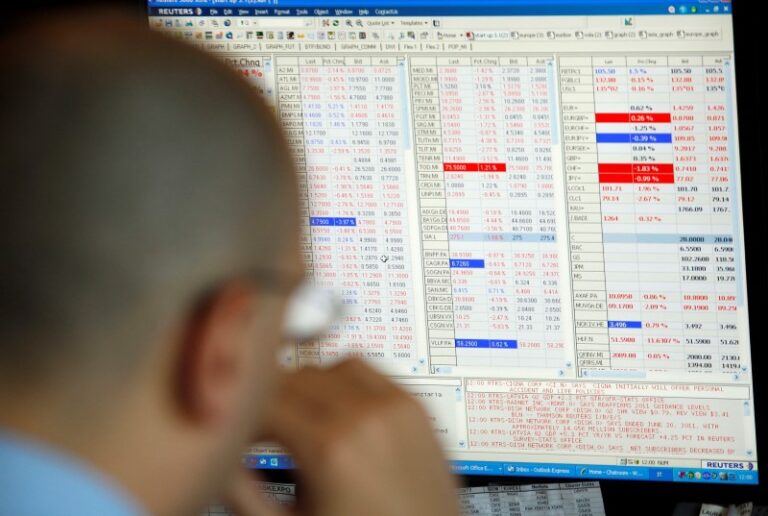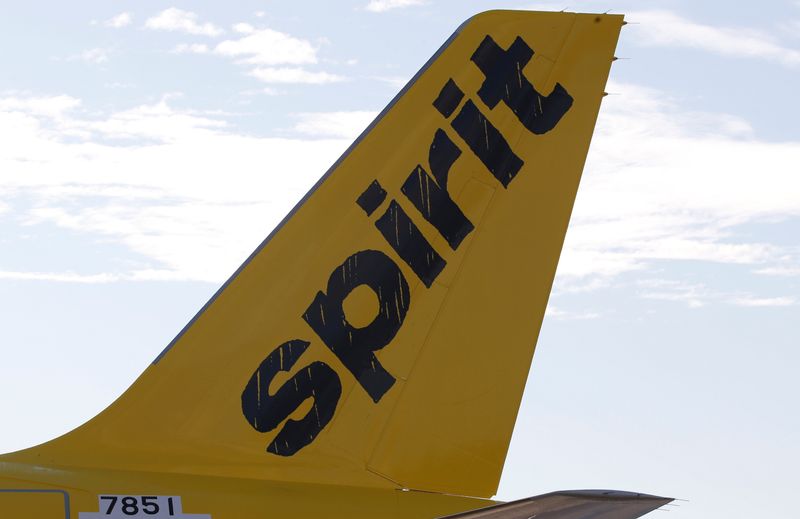
[ad_1]
 © Reuters. A logo of low cost carrier Spirit Airlines is pictured on an Airbus plane in Colomiers near Toulouse, France, November 6, 2018. REUTERS/Regis Duvignau/File Photo
© Reuters. A logo of low cost carrier Spirit Airlines is pictured on an Airbus plane in Colomiers near Toulouse, France, November 6, 2018. REUTERS/Regis Duvignau/File PhotoBy Rajesh Kumar Singh
CHICAGO (Reuters) -Spirit Airlines has offered as much as a 43% cumulative weighted average pay raise to its pilots over two years, according to a union memo seen by Reuters.
The deal is yet more evidence of the bargaining power pilots are enjoying as carriers staff up to meet booming travel demand. It comes a week after Delta Air Lines (NYSE:) offered a 34% cumulative pay increase to its pilots over three years in a new contract.
In a memo sent out to its members on Friday, Spirit’s pilot union said the deal will result in a 43% cumulative weighted average pay raise for first officer and a 25% wage increase for captain over two years. Overall, it would lead to a 34% cumulative weighted average increase in pay rates for Spirit pilots, the memo said.
The Air Line Pilots Association (ALPA), which represents pilots at the ultra-low-cost carrier, said the new contract agreement represents an economic gain of $463 million or 27% over the next two years for the pilots.
If ratified by the pilots, the two-year agreement will become effective on Jan. 1. A date for a union member vote on the offer was not immediately known. The pilot union has planned roadshows between Dec. 14-20 to generate support for the deal.
The proposed contract also provides for higher training pay and increased contribution to 401(k). ALPA said the deal involves “zero concessions” on the part of Spirit pilots.
“This agreement…stands in stark contrast to previous bargaining cycles at Spirit and other large jet carriers, where pilots have endured years of stagnating compensation while negotiating comprehensive pilot contracts,” said Spirit’s pilot union head Ryan Muller.
ALPA said the proposed contract will cover 3100 Spirit pilots.
Spirit didn’t respond to a request for comments.
After reducing headcount by thousands during the depths of the pandemic, airlines are grappling with a shortage of pilots, enhancing the bargaining power of workers.
Analysts at Jefferies estimate the United States is short of 10,000 pilots. This supply-demand gap is projected to last until 2027.
In July, Spirit agreed to sell itself to JetBlue Airways (NASDAQ:) Corp in a $3.8 billion deal, which is expected to close no later than the first half of 2024. While Spirit’s shareholders have approved the merger, the fate of the deal hinges on securing regulatory approvals.
[ad_2]